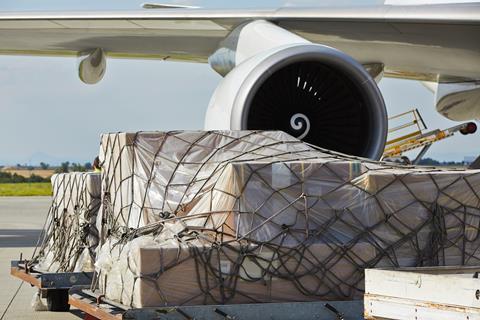
Strong air cargo growth is expected to continue in the first half of 2022, but with continued pressure on capacity, writes Ian Putzger.
Despite, and partly because of, ongoing turbulence, air cargo keeps going strong. The industry flew through 2021 with an 18.7% increase in traffic over 2020 and 6.9% higher than in 2019. According to IATA, growth was well ahead of the rise in global trade.
2022 has continued in this vein and predictions are for more of the same at least for the first half of the year. IATA conducted a survey of airline chief financial officers and heads of cargo in December and January, who reported improved passenger and cargo volumes and expressed optimism that cargo yields would remain at lofty heights.
The air cargo industry is soaring on strong fundamentals. Inventory-to-sales ratios remain at low levels, necessitating ongoing re-stocking, with strong impetus from economic growth and rising global trade. In addition, the congestion that has plagued ocean cargo over the past year is not expected to abate significantly in the near term, with some voices predicting this to last through 2022, which promises elevated need for airfreight.
This spells continuing pressure on capacity, even though passenger airlines are in recovery mode. Aviation intelligence firm IBA predicts capacity of US and European low-cost airlines to exceed pre-Covid levels this year and transatlantic passenger traffic to recover to 2019 levels. However, Asia Pacific carriers continue to limp, with some not expected to reach half of their 2019 capacity this year.
[ED: On top of this is the invasion of Ukraine, which has severely limited AirBridgeCargo's and Volga-Dnepr's capacity while other airlines are scrambling to maintain services with extended routings to avoid Russian or European airspace.]
The experience with the Omicron variant was a powerful illustration how volatile the situation remains. Stringent Covid-related restrictions have severely hobbled Cathay Pacific’s longhaul freighter operations for months and Lufthansa Cargo had to embargo flows through its Frankfurt hub in late January after an Omicron outbreak decimated ground staff there.
The inevitable hunt for capacity is keeping rates in the stratosphere, and the trajectory of the oil price is adding fuel to the fire. Shippers are bracing themselves for more squeeze on their wallets. For the red-hot trucking industry, which has shown similar capacity pressures as airfreight, a recent survey reported that 97% of shippers expected to increase their freight procurement budget this year, more than half anticipating increases of 25% or more.
Forwarders are responding to the situation with moves to tie up more dedicated lift, from large players like Flexport to mid-sized companies like cargo-partner.
The scramble for capacity will go on. Those that have automated processes will find the going somewhat less strenuous.















